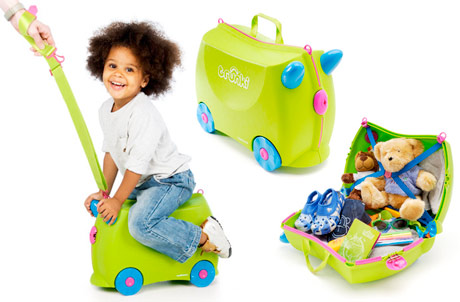Greeting Cards Cash In…
Cameron Johnson started down the entrepreneurial path when he was just 9 years old by creating greeting cards for a holiday party his parents were throwing. Recipients of these cards were so impressed with the creativity and quality of the cards so much so that by the tender age of 11, Johnson had already managed to save up several thousand dollars selling personalized greeting cards for his Company which he dubbed Cheers and Tears. This taste of success proved infectious to Cameron and at age twelve he bought his sisters collection of 30 beanie babies from her for $100. Immediately,

he turned around and sold the collection on ebay for over $1000!!! -Not bad for a 12 year old!!!
Sprinkle in a little Advertising…
The next year, Johnson banked $50,000 he had made as seed money for his next venture, My EZ Mail- a service that forwards emails to recipients without revealing any of the recipients personal information. Within only a few short months the company was raking in $3000 a month on advertising revenue alone! HE still wasn’t done however, and in 1997, he joined forces with several other enterprising teens to start surfingprizes.com,
a company that displays those lovely banner adds across the top of webpages that we all love so dearly. This business proved to be his most profitable one yet, and within a few months the business started drawing in revenue to the amount of $300,000 a month!!!
Cashing in on a Few More Cards…
On top of this, Johnson found that he had accumulated a bunch of unwanted gift certificates over time and decided to form an online company that would allow you to exchange gift cards without any serious penalties. In 2004, he sold his business, Certificate swap.com for an undisclosed six figure amount, making him worth an excess of $1000000 by the age of 19. Today, Johnson appears on many business oriented tv shows including ABC’s Oprah’s Big Give and BBC’s Beat the Boss. All I know is that if this guy doesn’t make you feel unaccomplished, I don’t know what will!
 for his
for his

 his father’s advice when an oncoming truck forced Wimmer to jump into a ditch to avoid being hit during a training run. After graduating, Wimmer and his father, an entrepreneur, holed up in their basement, and using credit cards to back their endeavors, began producing athlete-friendly ID tags, modeled after military dog tags. The two of them called their upstart Erlanger, Kentucky based company Road ID. Now, thirteen years later, the company continues to make these athletic ID tags and will engrave them with anything the customer chooses, but still recommends including “vital statistics and inspirational mantras to help lift spirits mid-workout.” An interactive version of these tags also gives responders access to your medical information including allergies and health insurance in the case of an emergency. However safety’nuts are not the only people who have taken an interest in these ID bands. What started out as a practical way to protect athletes has now evolved into a status symbol- a fashion statement that says: “I’m an athlete.”
his father’s advice when an oncoming truck forced Wimmer to jump into a ditch to avoid being hit during a training run. After graduating, Wimmer and his father, an entrepreneur, holed up in their basement, and using credit cards to back their endeavors, began producing athlete-friendly ID tags, modeled after military dog tags. The two of them called their upstart Erlanger, Kentucky based company Road ID. Now, thirteen years later, the company continues to make these athletic ID tags and will engrave them with anything the customer chooses, but still recommends including “vital statistics and inspirational mantras to help lift spirits mid-workout.” An interactive version of these tags also gives responders access to your medical information including allergies and health insurance in the case of an emergency. However safety’nuts are not the only people who have taken an interest in these ID bands. What started out as a practical way to protect athletes has now evolved into a status symbol- a fashion statement that says: “I’m an athlete.”  Runners, cyclists, and many other athletes are now wearing their Road ID’s even when they are not working out. In 2011 the previously online retailer decided to broaden its horizons by using kiosks to market and sell their bands in sporting goods shops. In addition to this, the company deals heavily in social media and email advertising as well as word of mouth. When a customer buys any Road ID product, they receive a special discount code that they can use and share for 30 days to get deals on other Road ID goods. In this way Road ID makes its customers its prime salesmen. Although Wimmer refuses to divulge the company’s current worth, he claims that the company has growth by about 50% every year since 2002 and expects that its growth will continue as more and more athletes become acquainted with their product and want the image that it provides.
Runners, cyclists, and many other athletes are now wearing their Road ID’s even when they are not working out. In 2011 the previously online retailer decided to broaden its horizons by using kiosks to market and sell their bands in sporting goods shops. In addition to this, the company deals heavily in social media and email advertising as well as word of mouth. When a customer buys any Road ID product, they receive a special discount code that they can use and share for 30 days to get deals on other Road ID goods. In this way Road ID makes its customers its prime salesmen. Although Wimmer refuses to divulge the company’s current worth, he claims that the company has growth by about 50% every year since 2002 and expects that its growth will continue as more and more athletes become acquainted with their product and want the image that it provides. Pacque, never found his jacket, but what he did find was the inspiration for a business idea. He noticed that none of the bars or clubs in town had a coat check, so the only way you could make sure that your coat did’t get stolen was to leave it at home or in the car, or wear it the entire time you were at the bar. Parcque approached several local bar owners and asked if they would be interested in offering a coat check at their bars; several bar owners expressed an interest, and Pacque decided to move on with his idea. First he invested $500 in materials to make portable coat racks, then he hired on a several college students and launched Hoosier Coat Check. Three local bar owners signed on and the Hoosier began offering its coat check services at $2 to $3, giving a 10-30% cut to the bar owner. On cold nights, each coat check could bring in up to $1,500, and within 6 months the company had made about $50,000. The business was more profitable that Pacque had originally anticipated, but it came with its own set of problems; people would often lose their tickets or pick up the wrong coat causing huge hassles.
Pacque, never found his jacket, but what he did find was the inspiration for a business idea. He noticed that none of the bars or clubs in town had a coat check, so the only way you could make sure that your coat did’t get stolen was to leave it at home or in the car, or wear it the entire time you were at the bar. Parcque approached several local bar owners and asked if they would be interested in offering a coat check at their bars; several bar owners expressed an interest, and Pacque decided to move on with his idea. First he invested $500 in materials to make portable coat racks, then he hired on a several college students and launched Hoosier Coat Check. Three local bar owners signed on and the Hoosier began offering its coat check services at $2 to $3, giving a 10-30% cut to the bar owner. On cold nights, each coat check could bring in up to $1,500, and within 6 months the company had made about $50,000. The business was more profitable that Pacque had originally anticipated, but it came with its own set of problems; people would often lose their tickets or pick up the wrong coat causing huge hassles.




